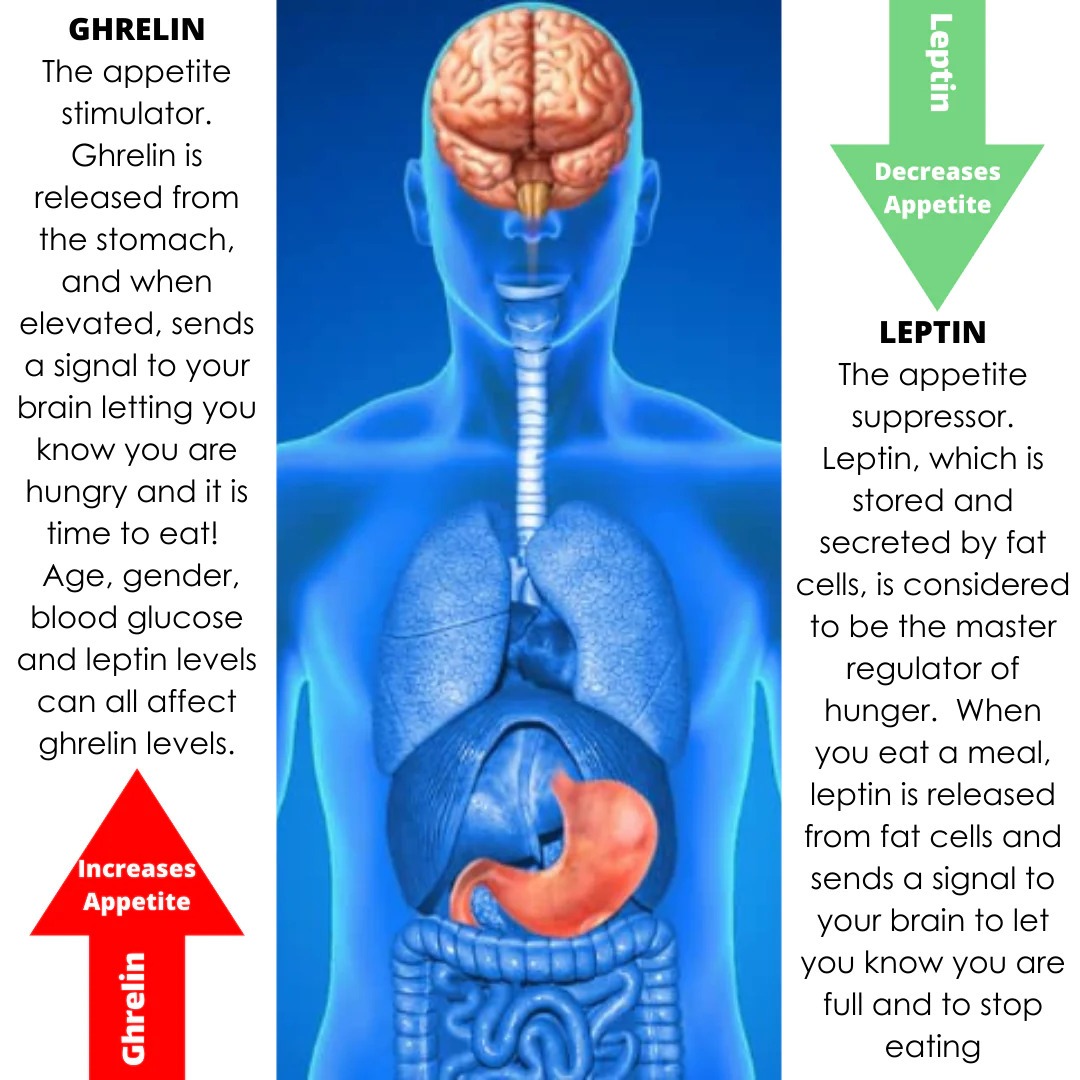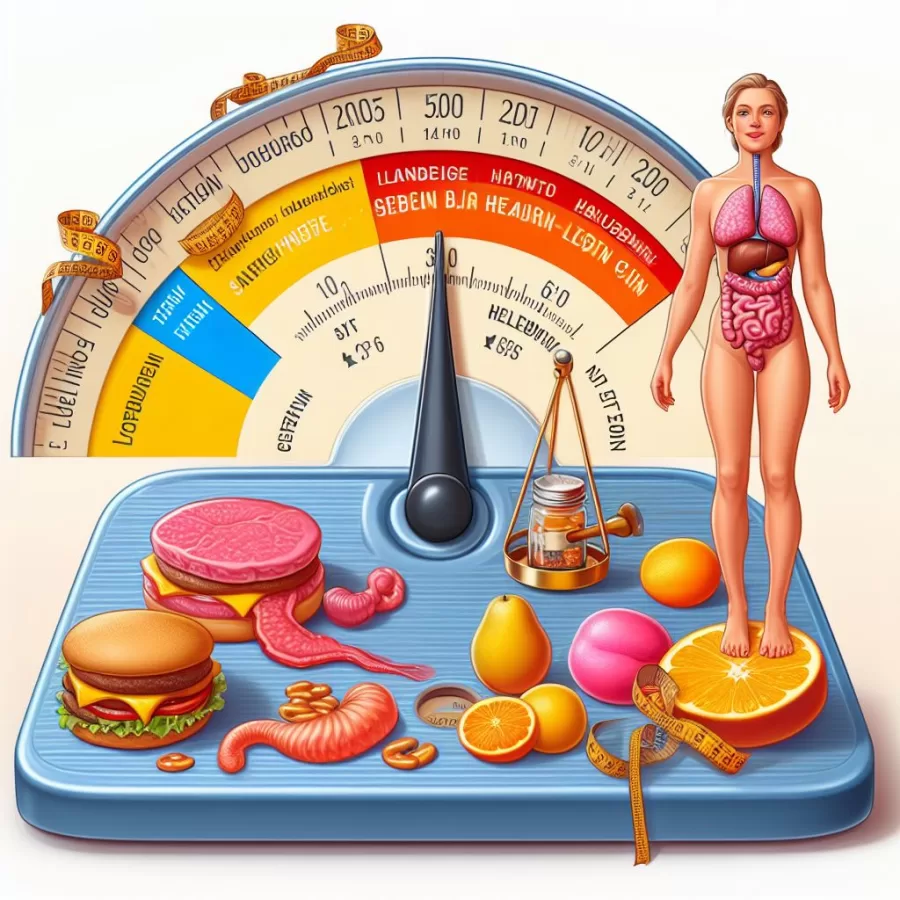The hunger hormones, Ghrelin and Leptin, responsible for regulating our appetite, are remarkable creations by the divine hands of God Creator of all things! Nevertheless, a comprehensive understanding of them is crucial. As a researcher, I recognize the importance of understanding how our daily actions impact food cravings, weight, and overall health, especially for individuals experiencing fluctuations in weight like a yo-yo. Let’s embark on a journey to uncover the workings of these hunger hormones and explore natural ways to maintain their balance
Prof. Aécio D’Silva, Ph.D.
AquaUniversity
Have you ever wondered what makes you feel hungry or full? Why do you sometimes crave certain foods or eat more than you need? The answer lies in your hormones, especially ghrelin and leptin. These hormones are responsible for regulating your appetite, energy, and metabolism. They also play a role in your weight and health. In this blog post, we will explain what ghrelin and leptin are, how they affect your hunger and satiety, and how to balance them naturally.
What are ghrelin and leptin?
Ghrelin and leptin are hormones (chemical messengers) that work together to help your body balance hunger and fullness. Ghrelin makes you feel hungry, and leptin makes you feel full. Ghrelin and leptin work independently and together to regulate your appetite. (1)
Ghrelin is produced by your stomach and other parts of your body, such as your brain, small intestine, and pancreas. When your stomach is empty or mostly empty, ghrelin levels rise in your bloodstream. This signals your brain that you need to eat, triggering hunger. Ghrelin also stimulates your digestive system to move food from your stomach through your intestines. Ghrelin has other functions, such as increasing food intake, promoting fat storage, stimulating growth hormone release, controlling blood sugar and insulin, and protecting your cardiovascular health. (1)
Leptin is produced by your fat cells and released into your bloodstream. When you eat a meal and have enough energy stored, leptin levels rise in your blood. This tells your brain that you have enough energy reserves, reducing your desire to eat. Leptin also affects your metabolism, which is the process of converting food into energy. Leptin helps your body burn calories and fat and prevents you from storing excess fat. Leptin has other functions, such as regulating reproductive hormones, the immune system, and bone formation. (2)
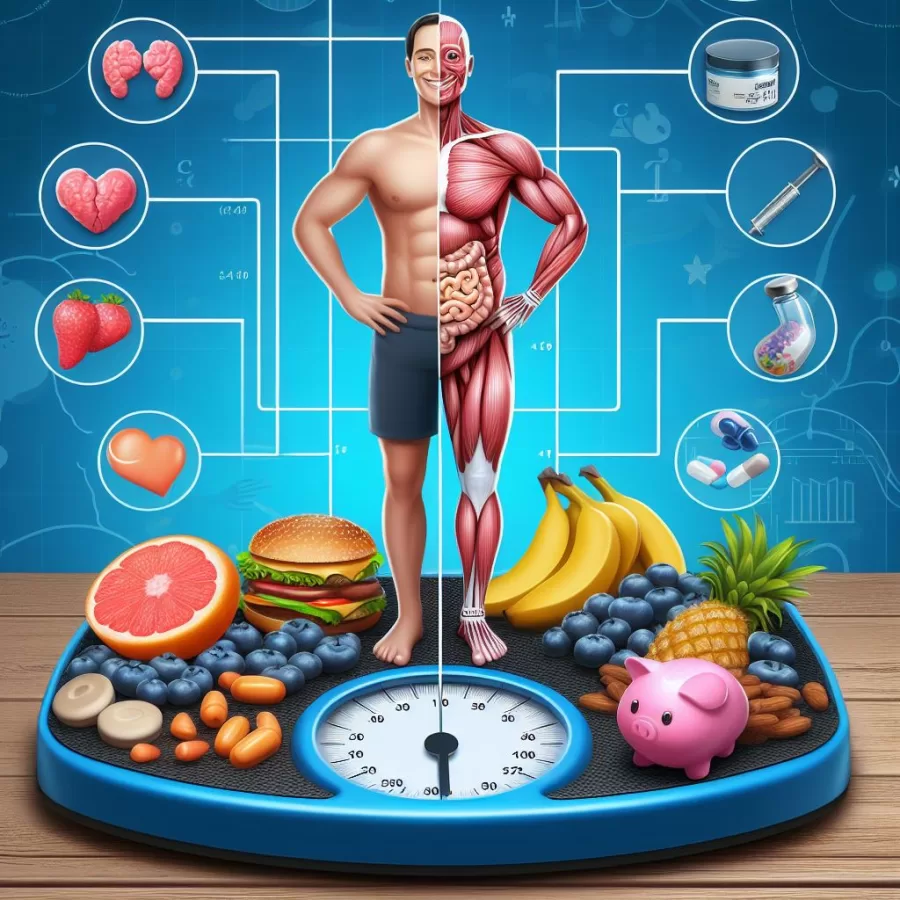
How do ghrelin and leptin affect your weight and health?
Ghrelin and leptin affect your weight and health by influencing your appetite, energy, and metabolism. When these hormones are balanced, they help you maintain a healthy weight and prevent overeating or undereating. However, when these hormones are imbalanced, they can disrupt your appetite regulation and metabolism, leading to weight gain or loss, and other health problems. (1,2)
What causes ghrelin and leptin imbalance?
Ghrelin and leptin imbalance can have various causes, such as:
- Obesity. Obesity is a condition where you have excess body fat that can harm your health. Obesity can lower your leptin sensitivity, which means your brain does not respond well to leptin signals. This can make you feel hungry even when you have enough energy stored, and make you eat more than you need. Obesity can also lower your ghrelin levels, which means your stomach does not produce enough ghrelin to signal your brain when you are hungry. This can make you eat less frequently, but more in quantity, and choose foods that are high in calories, fat, and sugar. (1,2)
- Calorie restriction. Calorie restriction is a practice where you limit your calorie intake to lose weight or improve your health. Calorie restriction can increase your ghrelin levels, which means your stomach produces more ghrelin to signal your brain that you are hungry. This can make you feel hungry more often, and make you crave foods that are high in calories, fat, and sugar. Calorie restriction can also lower your leptin levels, which means your fat cells produce less leptin to signal your brain that you are full. This can make you feel less satisfied after eating, and make you eat more than you need. (1,2)
- Stress. Stress is a state of mental or emotional strain or tension that can result from challenging or demanding situations. Stress can increase your cortisol levels, which is a hormone that helps your body cope with stress. Cortisol can stimulate your ghrelin production, which means your stomach produces more ghrelin to signal to your brain that you need more energy to deal with stress. This can make you feel hungry more often, and make you eat more than you need. Stress can also lower your leptin sensitivity, which means your brain does not respond well to leptin signals. This can make you feel less full after eating, and make you eat more than you need. (1,2)
- Hormonal changes. Hormonal changes are fluctuations in the levels or activity of hormones in your body. Hormonal changes can occur due to various factors, such as age, gender, puberty, pregnancy, menopause, or medical conditions. Hormonal changes can affect your ghrelin and leptin production and sensitivity, which can alter your appetite and metabolism. For example, estrogen, progesterone, and testosterone can influence ghrelin and leptin levels and activity. Estrogen and progesterone can lower ghrelin and increase leptin, while testosterone can increase ghrelin and lower leptin. (1,2)
What are the symptoms of ghrelin and leptin imbalance?
Ghrelin and leptin imbalance can cause various symptoms, such as:
- Increased or decreased appetite. Ghrelin and leptin imbalance can make you feel hungry or full more or less than usual, depending on the cause and direction of the imbalance. You may also experience changes in your food preferences, cravings, and satisfaction. (1,2)
- Weight gain or loss. Ghrelin and leptin imbalance can affect your energy intake and expenditure, which can lead to weight gain or loss. You may also experience changes in your body composition, such as fat mass, muscle mass, and bone mass.
- Metabolic disorders. Ghrelin and leptin imbalance can affect your blood sugar and insulin levels, which can increase your risk of developing metabolic disorders, such as diabetes, insulin resistance, and metabolic syndrome. These disorders can impair your body’s ability to process glucose and fats and cause complications, such as cardiovascular disease, kidney disease, and nerve damage.
- Reproductive problems. Ghrelin and leptin imbalance can affect your reproductive hormones, which can cause problems, such as irregular periods, infertility, polycystic ovary syndrome (PCOS), erectile dysfunction, and low libido. These problems can affect your fertility, sexual function, and quality of life. (1,2, 3)
- Mood and cognitive issues. Ghrelin and leptin imbalance can affect your mood and cognitive function, which can cause issues, such as depression, anxiety, irritability, fatigue, poor concentration, memory loss, and learning difficulties. These issues can affect your mental health, performance, and well-being. (1,2)
How to balance ghrelin and leptin naturally?
Balancing ghrelin and leptin naturally can help you regulate your appetite, weight, and health. Here are some tips to balance these hormones naturally:
- Eat a balanced and nutritious diet. Eating a balanced and nutritious diet can help you provide your body with the nutrients and energy it needs and prevent nutrient deficiencies that can affect your hormone production and sensitivity. Aim to eat a variety of foods from different food groups, such as fruits, vegetables, whole grains, lean proteins, healthy fats, and dairy products. Avoid or limit foods that are high in added sugar, salt, and fat.
- Eat at regular intervals and avoid skipping meals. Eating at regular intervals and avoiding skipping meals can help you maintain stable blood sugar and insulin levels and prevent hunger and cravings. Aim to eat three balanced meals and one or two healthy snacks per day and avoid going longer than four hours without eating. Eating breakfast can also help you kickstart your metabolism and reduce your ghrelin levels throughout the day. (1,2)
- Eat slowly and mindfully. Eating slowly and mindfully can help you enjoy your food, listen to your body’s signals, and avoid overeating or undereating. It takes about 20 minutes for your brain to register that you are full, so eating slowly can help you avoid eating more than you need. Eating mindfully can help you pay attention to your hunger and fullness cues and choose foods that are satisfying and nourishing. You can practice mindful eating by avoiding distractions, such as TV, phone, or computer, while eating, and focusing on the taste, texture, smell, and appearance of your food. (1,2)
- Drink plenty of water. Drinking plenty of water can help you stay hydrated, flush out toxins, and curb your appetite. Water can also help dilute the concentration of sugar in your blood, which can reduce sugar cravings. Drink at least eight glasses of water per day, and add some lemon, cucumber, mint, or berries for a refreshing flavor. You can also drink herbal. (1,2)
- Exercise regularly. Exercising, such as walking, regularly can help you burn calories and fat, and improve your metabolism and muscle mass. Exercise can also help lower your ghrelin levels and increase your leptin sensitivity, which can reduce your hunger and increase your fullness. Exercise can also help reduce your stress and improve your mood and cognitive function, which can affect your appetite and eating behavior. Aim to do at least 30 minutes of moderate-intensity physical activity daily, such as brisk walking, jogging, cycling, swimming, or dancing.
- Get enough sleep. Getting enough sleep can help you restore your energy and balance your hormones. Sleep can also help lower your ghrelin levels and increase your leptin sensitivity, which can reduce your hunger and increase your fullness. Sleep can also help regulate your cortisol levels, which can affect your appetite and metabolism. Aim to get at least seven to nine hours of quality sleep per night, and avoid caffeine, alcohol, nicotine, and blue light before bedtime.
- Practice Meditative Respiration. Typically, experiences of fear, stress, depression, worry, or anxiety may lead to ghrelin and leptin imbalance. Discover how to manage these emotions by consistently engaging in the 478-Psalm 23 Meditative Breathing Technique. This practice can help alleviate negative feelings, enhance your mental well-being, elevate your mood, and contribute to overall improved health. Upon completing the reading of this post, click this link to explore more about this technique.
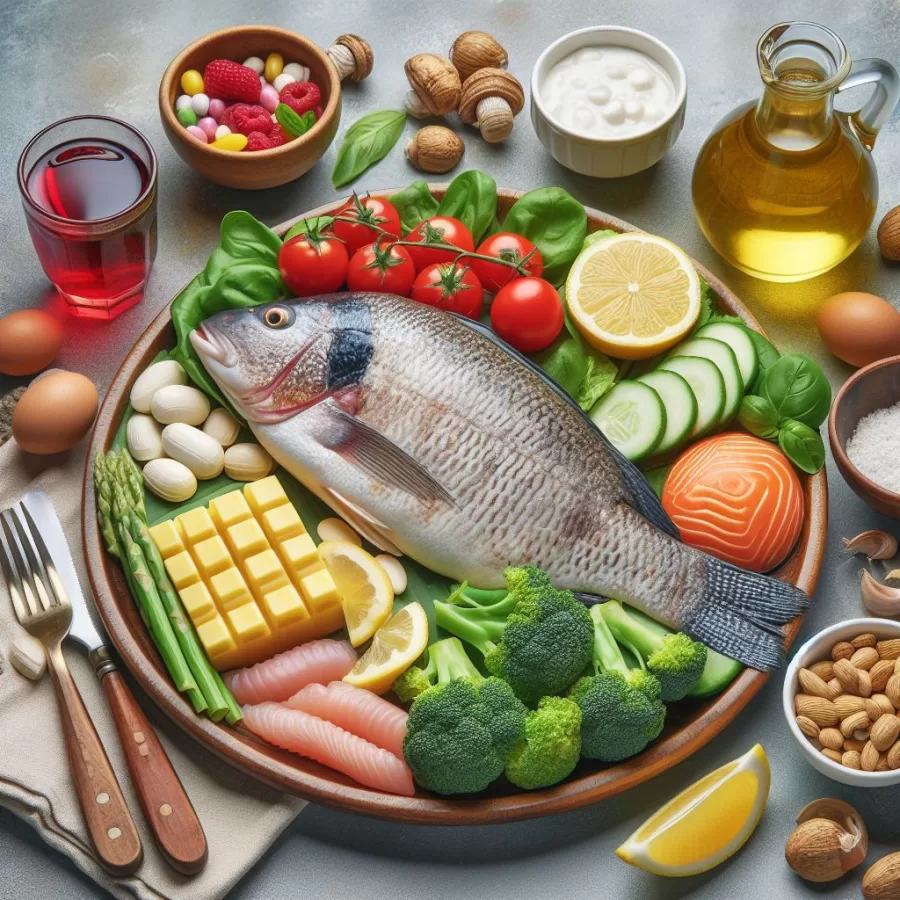
What are some foods that can balance ghrelin and leptin?
Some foods that can balance ghrelin and leptin are:
- Protein-rich foods. Protein-rich foods, such as eggs, meat, fish, poultry, dairy, nuts, seeds, and legumes, can help lower ghrelin levels and increase leptin sensitivity. Protein can also help you feel full and satisfied and support your muscle mass and metabolism. (4, 5, 6)
- Fiber-rich foods. Fiber-rich foods, such as fruits, vegetables, whole grains, and beans, can help stretch your stomach and keep ghrelin levels in check. Fiber can also help you feel full and satisfied and regulate your blood sugar and insulin levels. (4, 5, 6, 7)
- Healthy fats. Healthy fats, such as avocado, coconut, olive oil, nuts, seeds, and fatty fish, can help lower ghrelin levels and increase leptin sensitivity. Healthy fats can also help you feel full and satisfied and provide essential fatty acids and anti-inflammatory benefits. (4, 5, 6)
- Prebiotics and probiotics. Prebiotics and probiotics are beneficial for your gut health, which can affect your ghrelin and leptin production and sensitivity. Prebiotics are foods that feed your good gut bacteria, such as garlic, onions, leeks, bananas, and artichokes. Probiotics are foods that contain live good bacteria, such as yogurt, kefir, sauerkraut, kimchi, and kombucha. (4, 6)
- Water and herbal teas. Water and herbal teas can help you stay hydrated, flush out toxins, and curb your appetite. Water can also help dilute the concentration of sugar in your blood, which can reduce sugar cravings. Herbal teas, such as peppermint, chamomile, and cinnamon, can have a natural sweet taste and help calm your nerves. (4, 6)
How do I know if I have a balance or imbalance of ghrelin and leptin?
One way to know if you have a balance or imbalance of ghrelin and leptin is to pay attention to your hunger and fullness cues. If you feel hungry when your stomach is empty or mostly empty, and feel full when you have eaten enough, then your ghrelin and leptin levels are likely balanced. However, if you feel hungry even when you have enough energy stored, or feel less satisfied after eating, then your ghrelin and leptin levels may be imbalanced. (4)
Another way to know if you have a balance of ghrelin and leptin is to check your weight and body composition. If you maintain a healthy weight and body fat percentage, then your ghrelin and leptin levels are likely balanced. However, if you gain or lose weight rapidly, or have excess or low body fat, then your ghrelin and leptin levels may be imbalanced.
The only way to directly measure your ghrelin and leptin levels is to get a blood test. However, these tests are rarely performed and are only done in very specific cases, such as in children with severe obesity or in people with certain metabolic disorders. (3, 8)
Therefore, it is more practical and useful to monitor your hunger and fullness signals, and your weight and body composition, to assess your ghrelin and leptin balance.
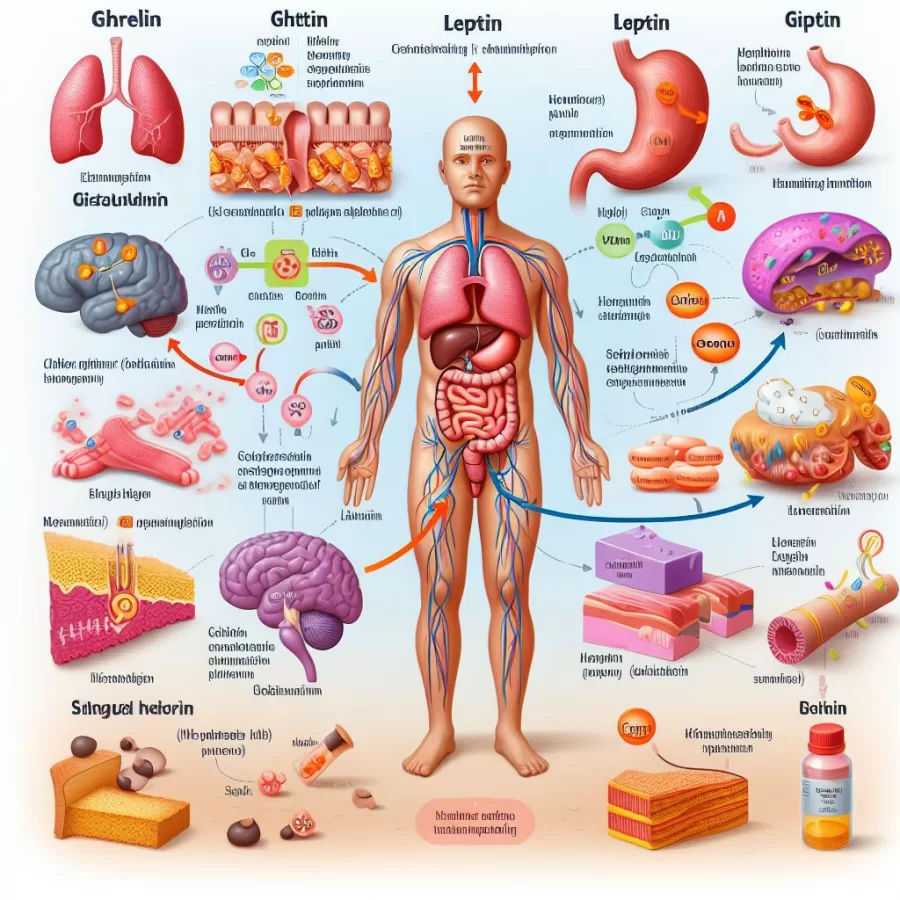
Further insights into recognizing signs of hormonal imbalance?
An additional method to determine if your hormones are out of balance is to look for signs and symptoms that indicate a hormonal imbalance. These signs and symptoms may vary depending on which hormones or glands are affected, but some common ones include:
- Weight gain or loss
- Fatigue or muscle weakness
- Mood swings or depression
- Anxiety or irritability
- Increased or decreased appetite
- Increased or decreased thirst
- Frequent urination
- Increased or decreased heart rate
- Increased or decreased sensitivity to cold or heat
- Constipation or diarrhea
- Blurred vision
- Infertility or low sex drive
- Hair loss or thinning
- Dry skin or acne
- Puffy face or rounded face
- Purple or pink stretch marks
However, these signs and symptoms are not specific to hormonal imbalances and may also be caused by other factors or conditions. Therefore, it is important to consult with your doctor if you experience any of these signs and symptoms and get a proper diagnosis and treatment.
Another way to know if your hormones are imbalanced is to get a blood test that measures your hormone levels. However, these tests are not routinely done and are only performed in certain cases, such as when you have a suspected endocrine disorder, such as diabetes, thyroid disease, or pituitary adenoma. Your doctor will decide which hormones to test, and how to interpret the results, based on your medical history, physical examination, and symptoms.
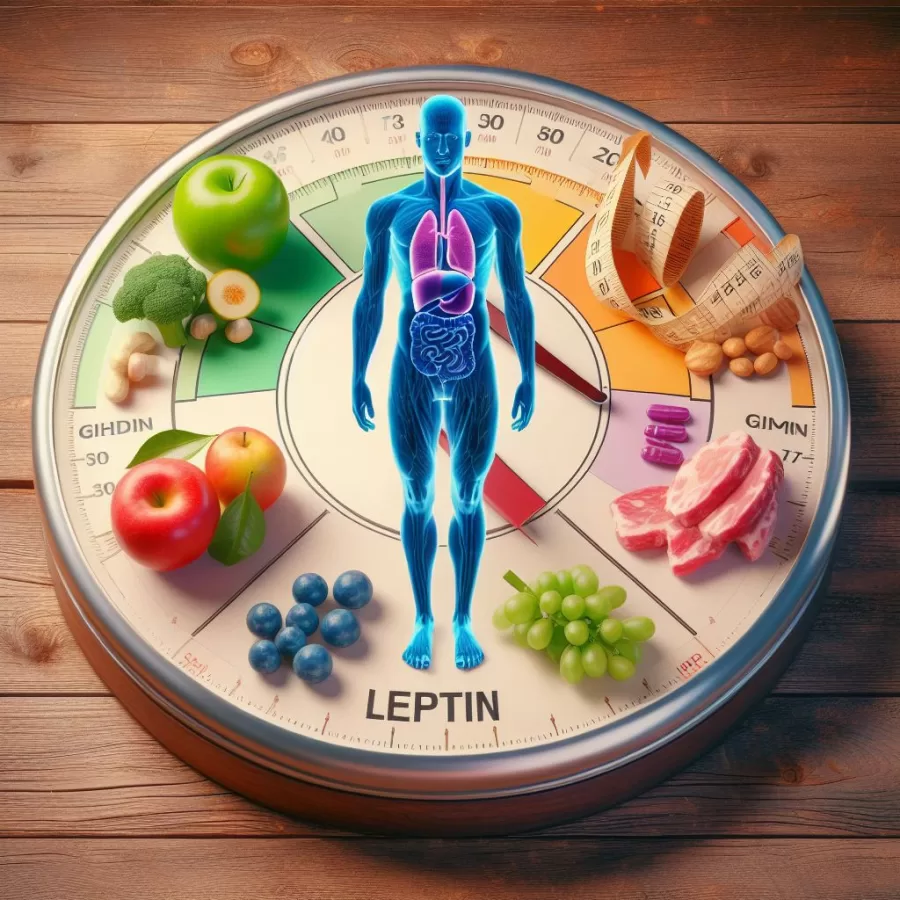
Concluding, Ghrelin and Leptin are hormones that regulate your appetite, energy, and metabolism. They work together to help you balance hunger and fullness and maintain a healthy weight and health. However, when these hormones are imbalanced, they can disrupt your appetite regulation and metabolism, leading to weight gain or loss, and other health problems. Ghrelin and leptin imbalance can have various causes, such as obesity, calorie restriction, stress, and hormonal changes. Ghrelin and leptin imbalance can cause various symptoms, such as increased or decreased appetite, weight gain or loss, metabolic disorders, reproductive problems, and mood and cognitive issues. To balance ghrelin and leptin naturally, you can follow these tips: eat a balanced and nutritious diet, eat at regular intervals, avoid skipping meals, eat slowly and mindfully, drink plenty of water, exercise regularly, and get enough sleep. By doing so, you will not only improve your appetite, weight, and health, but also your mood, energy, and well-being.
Always bear in mind: you hold the reins to your hunger hormones! The choice is yours to nurture your mind, body, and soul, and decide when to open or close your mouth. Embrace life with wisdom!
References:
(1) https://my.clevelandclinic.org/health/body/22804-ghrelin.
(2) https://jetmedicaltourism.com/ghrelin-vs-leptin/
(3) https://www.verywellhealth.com/ghrelin-and-leptin-7970365
(4) https://www.humnutrition.com/blog/ghrelin-and-leptin/
(5) https://leptin-resistance.com/how-to-balance-ghrelin-and-leptin/
(6) https://www.eatthis.com/foods-that-shut-off-hunger-hormones-fast/
(7) https://my-bmi.co.uk/education/ghrelin-and-leptin/
(8) https://nutritionj.biomedcentral.com/articles/10.1186/s12937-018-0427-x.
